12 Essential Benefits of Mobile Apps for Business in 2025
Here’s a wake-up call: in 2025, mobile commerce will be responsible for 59% of all retail eCommerce sales. That’s $4+ trillion in revenue. Most of this money will be generated on mobile apps – 85% of consumers prefer using mobile apps to mobile websites. In other words, with desktop usage flatlining, the benefits of mobile apps for business are undeniable – mobile apps will become the beating heart of business success this year.
Whether you are a retail titan or a corner café, the race is on to harness app-centric revenue streams like subscriptions, in-app purchases, and AI-driven ads. The reason behind this is that consumers are practically living on their phones, spending over 4 hours a day in apps, and businesses that do not keep up have high chances of failure.
Consider this. The average user checks their phones 58 times a day. 88% of their mobile time is spent on apps. The average smartphone user spends around 3 hours and 10 minutes each day using their device – 90% (about 2 hours, 51 minutes) of this time is spent on apps. For context, that’s 2X longer than time spent watching TV. These stats are screaming the advantages of mobile app for business. Consumers today are practically living on their phones, handing you a direct line to communicate with them. If you meet them where they live, your business will make a healthy slice of the $520+ billion that mobile apps are set to generate in direct revenue this year.
Look at Flo, a women’s health app that exploded to 70+ million users with a subscription model pulling in $100k monthly from just 10% of its base. Or, consider the hundreds of local fitness studios that bank $15k or more a month through virtual class subscriptions on their customized mobile apps. Even local cafes now earn up to 30% of their monthly revenue via apps like Toast. These businesses are thriving in an app-first universe and the ones that are not face a stark choice: build your own app or bleed customers.
The pandemic accelerated this trend. Now, apps aren’t mere business channels anymore; they are primary storefronts. 2025 is the year mobile apps shift from a competitive edge to a survival tool. Whether you are a solopreneur or a Fortune 500, the message is clear: mobile apps are where growth happens.
Are you ready to jump on board? Let’s explore the top 12 benefits of having a mobile app for your business in 2025.
12 Benefits of Having a Mobile App for Your Business
Here are 12 vital benefits of an app for your business:
Enhanced Brand Visibility & Recognition

One of the many indirect benefits of mobile app development is brand development. A mobile app can transform your users’ smartphones into constant ambassadors for your brand. Once they download your app, your brand’s logo will always be at their fingertips. By occupying prime digital real estate, your app icon becomes a subtle yet persistent reminder of your presence, cutting through the noise of crowded app stores and social feeds.
Businesses that follow the latest mobile app development trends and create clean, memorable app designs with ntuitive navigation get to create lasting impressions on users’ minds. Meanwhile, thoughtful push notifications keep their brands on top of users’ minds without overwhelming them.
For instance, Milk-Run, a local grocery delivery service, connects farmers with consumers through its app. This app features hyper-local branding to boost visibility among eco-conscious shoppers in urban areas. Its sleek design and timely updates about fresh produce have made it a recognizable name. Similarly, Bloom & Wild, a UK-based florist, sends personalized reminders for special occasions through its app, enhancing its reputation as a leader in online flower delivery. With its user-friendly interface and elegant design, it has become the go-to app for gift-givers.
Without apps, small businesses like these risk fading into the background.
Direct Marketing Channel

Mobile apps eliminate third-party intermediaries, giving brands full control over messaging and customer relationships. Through a mobile app, a business can share personalized content tailored to user preferences. It can launch synchronized marketing campaigns with push notifications, emails, and SMS.
Unlike social media’s shifting algorithms, apps offer predictable reach and direct engagement. Brands without apps have to rely on these unpredictable platforms and rented digital spaces where visibility hinges on paid boosts. An app can give them a direct ticket to their users’ minds.
Take Joe Coffee as an example. This brand uses its app to connect independent coffee shops with customers and lets shops send targeted promotions about new blends or loyalty perks straight to users’ phones. This direct line drives sales without the clutter of third-party platforms
Similarly, Mealime pings customers with geofenced notifications whenever they are near partner farms, letting them know that the brand knows all about using fresh, local, and high-quality ingredients in their food orders.
Improved Customer Engagement

Rising engagement is one of the most obvious benefits of an app for your business. Apps turn passive browsing into active participation through features like live feeds, polls, and rewards. Gamification elements like progress trackers can encourage users to keep visiting the app (that is, the business) while chatbots can provide 24/7 support and engagement.
For example, ClassPass allows users to book fitness classes at local studios, engaging them with reviews and personalized recommendations that foster a sense of community. Small studios gain from this active interaction, pulling users closer between sessions. Similarly, Booksy, an appointment booking app for salons and barbershops, simplifies scheduling and sends timely reminders regarding deals/offers to users.
These efforts make users feel like insiders. It makes them feel like a part of the brand.
Higher Customer Loyalty
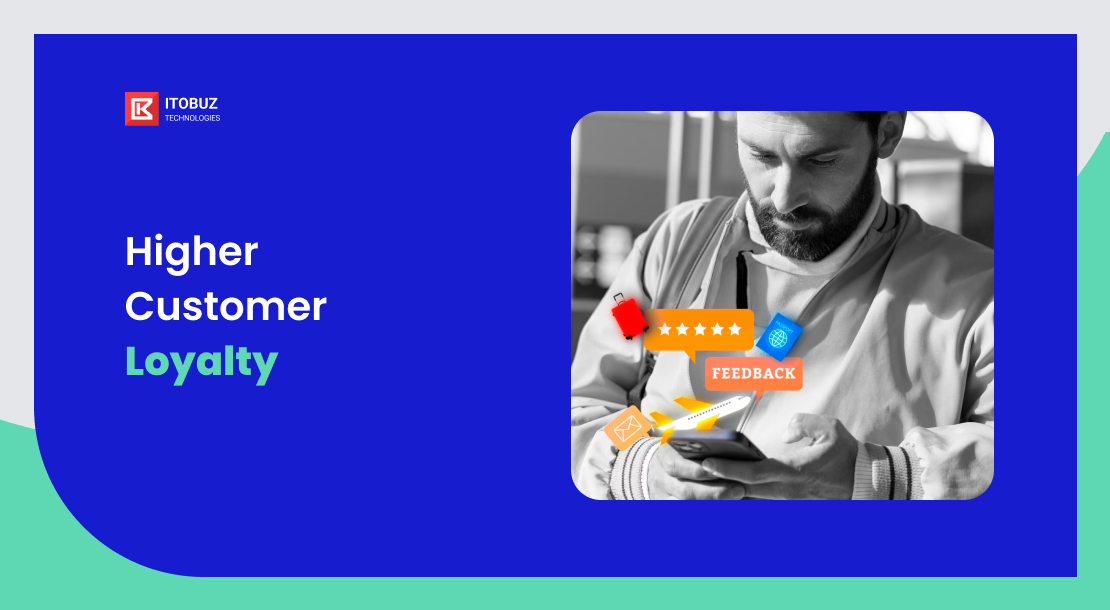
Brand loyalty is earned, and a mobile app can be a company’s biggest earner in this regard. It can remember what customers love showing that the brand is always paying attention. It can offer tiered rewards to make them feel treasured as they climb ranks with every buy. It can give them exclusive perks, streamlined ordering assistance, and early peeks at new items.
For example, Sweetgreen, a healthy food chain, uses its app to deliver rewards and personalized menu suggestions. These features encourage repeat visits and higher spending. Similarly, Maven Clinic, a women’s health services app, offers tailored care plans and exclusive resources to users. This helps it foster loyalty and high retention rates among its customers.
If you can use the best frameworks for mobile app development to create a cross-platform app that is usable on all devices, you too can cultivate a loyal customer base. Businesses without apps cannot offer such bond-building perks and have to rely on age-old discounts and marketing gimmicks that are not nearly as effective.
Faster & More Efficient Service
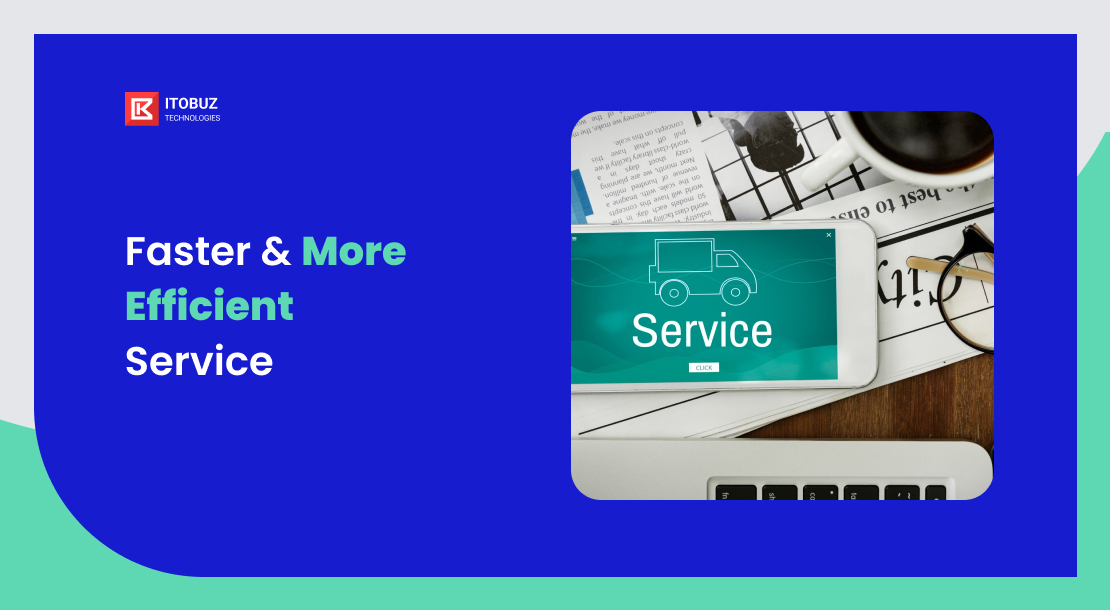
The ability to serve customers faster and more efficiently is one of the most important benefits of mobile apps for business. A mobile app is basically your fast-pass to offering smooth service. Features like one-click orders or instant bookings can zap all friction in user journeys. Self-service options can let your customers take charge, easing your service team’s load. From confirmations to payments – automation can handle the grunt work on your app like clockwork.
Squire, the barbershop management app, allows digital bookings, payments, and tipping; it cuts wait times for both barbers and clients. Fresh Menu, a food delivery service, lets users customize meals and track orders in real time through its app, drastically optimizing the company’s ability to serve customers.
Businesses without apps lag behind and get bogged down by slow, outdated customer service methods. An app that offers smooth experiences and is built according to the best practices for mobile app development can make your business the speed king.
Increased Sales & Revenue
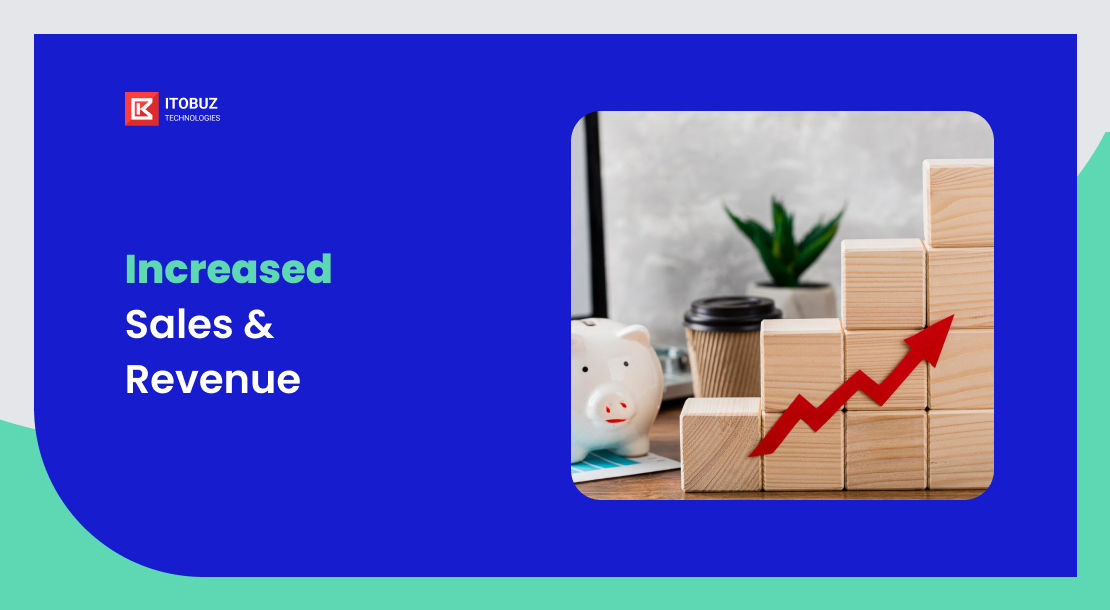
Picture your business as a lively marketplace where customers can grab what they want without a fuss. A mobile app makes this happen. With one-tap buying, shopping becomes as easy as snapping your fingers, encouraging people to splurge on the spot.
Personalized deals pop up like little surprises, tailored to what each person loves, nudging them to spend more. Subscription options keep the cash flowing by turning one-time buyers into regulars. All of these extra earnings ultimately offset your initial app development cost.
Without an app, your business is like a store with tricky locks. More customers might want to shop, but it’ll be just too hard. You’ll miss out on countless quick sales and clever upsells.
In a world glued to phones, apps are tickets to ringing up more sales. It is one of the many advantages of mobile app for business that directly boost the company’s bottom line. Imagine a small cheese shop with an app that suggests wine pairings using augmented reality – suddenly, a $10 cheese sale instantly turns into a $30+ chees and wine sale. Philz Coffee, a regional coffee chain, uses its app to do this exact thing. On its app, users get rewards and tailored offers for every order they make. This drives higher sales per customer with every order.
Competitive Advantage Over Rivals

Another amazing benefit of having a mobile app for your business is that it serves as a super-effective weapon in the race against your competitors. It shows you are bold and modern, ready to impress customers with cool features they cannot get elsewhere.
Your app can hook up with tools like fast payment systems or smart gadgets, making it so handy that customers won’t dream of switching. Plus, having an app paints you as a leader, not a follower, drawing in people who love the latest and greatest.
For example, Thrive Market, an organic grocery delivery business, stands out with its own app that has eco-friendly branding and a seamless interface. This app gives the brand a major edge over bigger rivals in a crowded market.
Businesses without apps? They are stuck in the slow lane, looking old-fashioned and missing the chance to dazzle their audience.
Better Customer Insights & Analytics

A mobile app can reveal exactly what your customers are up to. Every click and purchase spills the beans on their habits – what they like, what they skip, even what keeps them coming back. You can see which parts of your app they love most and tweak things to keep them hooked. Smart tools can even guess what they’ll want next, letting you plan ahead like a pro. It is like having a cheat sheet for making your business better.
That’s how restaurants that use Toast POS gain insights into customers’ food preferences. They use this data to tweak their menu offerings.
Now imagine having your own app where you own all customer data. You get the inside scoop on what your customers love. You can use that info to make smarter business moves and stay ahead.
Companies without apps are still stumbling in the dark, guessing what works and missing the big picture. They cannot fine-tune their game plan or spot golden business opportunities.
Seamless Integration with Business Ecosystems
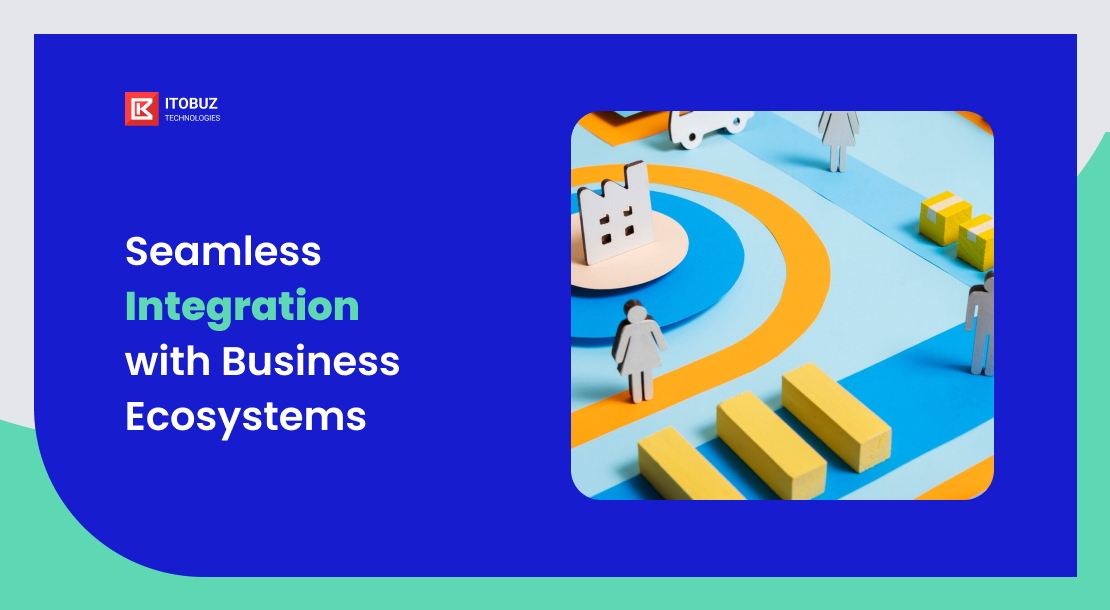
One of the subtler benefits of an app for your business is how it can serve as the nerve center of your company’s tech suite. It can tie together all the tools you use to supplement your brand, from customer management systems to payment processors, to help you create a slick, unified business operation.
If you invest in API development, it opens doors for your app to offer a host of third-party services. You can sync your app effortlessly with platforms like Salesforce to gather tons of customer insights. Or, you can sync it with Stripe to track all customer payments. And once you add IoT capabilities to your app, you can sync it with everything from your customers’ smart locks to their inventory trackers, all in real time.
Without an app, your company grapples with fragmented tech stacks, inefficiencies, and missed opportunities to scale your business operations. Competitors might leverage integrated ecosystems to operate leaner, adapt faster, and deliver more value through their unified solutions.
Amplified Social Media Synergy
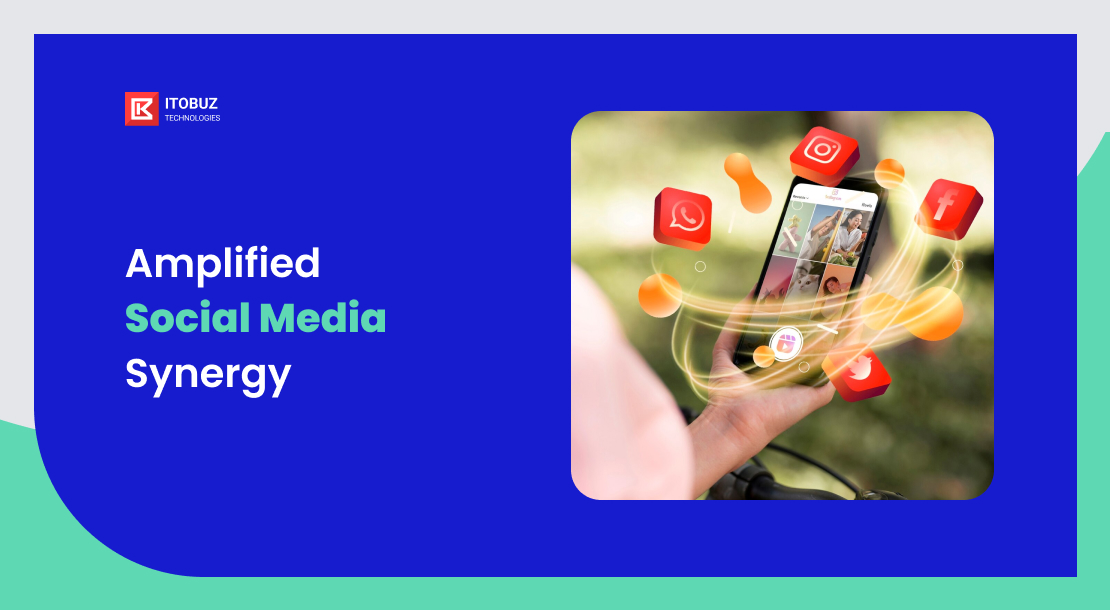
Features like one-tap sharing to Instagram or TikTok can transform all user-generated content in your app into organic marketing materials. Social login options via those same platforms can streamline onboarding. That’s why business apps with built-in social tools can keep their brands culturally relevant in fast-moving digital conversations.
Brands like Nike leverage in-app communities to foster loyalty, creating spaces for users to share achievements and collaborate. Similarly, Peloton’s app lets users share workouts and join live classes, creating a fitness tribe that spreads the word organically. That’s how you turn followers into a movement, one share at a time.
Businesses struggle to bridge the gap between social engagement and actionable outcomes without this synergy. They still have to rely on disjointed digital marketing campaigns that have diluted impacts.
Uninterrupted Offline Functionality

Apps that work offline ensure reliability in connectivity-challenged environments. Advanced caching lets users accept critical features, like Google Maps’ saved routes or Spotify’s downloaded playlists, anytime, anywhere. Automatic data synchronization upon reconnection maintains seamless workflows, a feature vital for field teams using apps like ServiceNow.
Why should these offline features matter to businesses? The answer is that a business should prioritize meeting customers where they are, not where the Wi-Fi is. An app that works offline builds trust, proving you have got their back. It is one of the quiet advantages of mobile app for business that speaks volumes.
Businesses without offline capabilities risk frustrating users during network drops, damaging trust, and losing transactions mid-process. In an always-on world, apps that perform regardless of signal strength set the standard for dependability.
Precision-Targeted Marketing
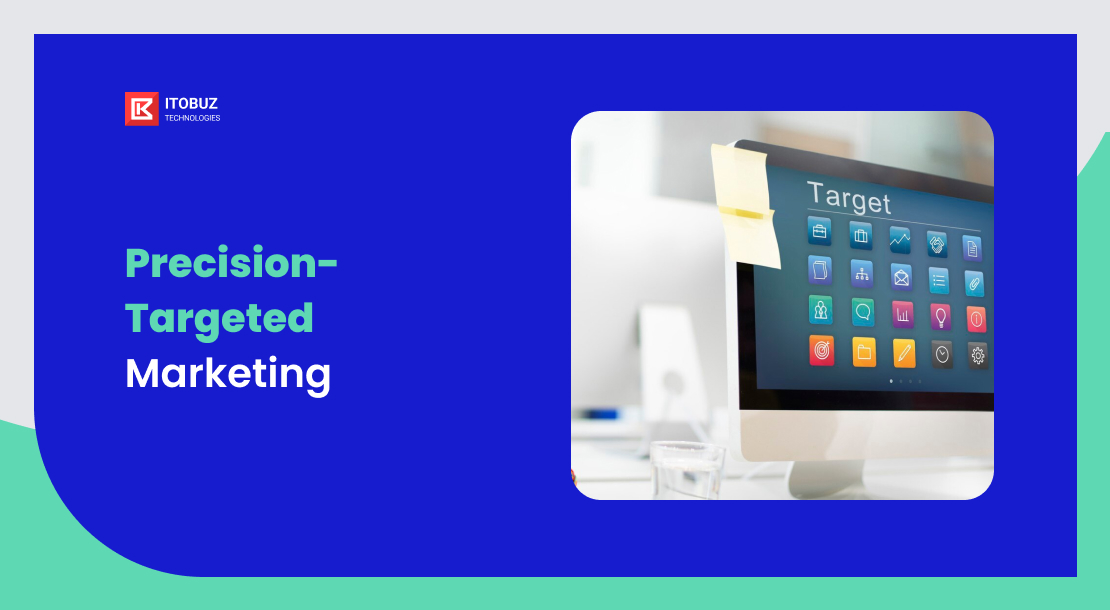
Forget megaphones and billboards. A mobile app puts your marketing right in your customer’s pocket. It is direct, personal, and sharp.
With personalization tools, you can craft messages that feel tailor-made, not mass-produced. In-app analytics help you to see what marketing efforts click, so you are never throwing darts in the dark. With push notifications, you can nudge users at just the right moment.
Without an app, you are stuck renting space on someone else’s platform, hoping the algorithm plays nice. With an app, you own the conversation, cutting out the middleman. Owning this channel cuts waste and builds deeper customer understanding.
Conclusion
Do you find these benefits of having a mobile app for your business exciting? You have not seen anything yet. The future of mobile app development is set to be a wild, ultra-exciting ride. We are talking AI-driven apps that predict what your customers want before they ask. Also, there’s augmented reality bringing in-app shopping, gaming, or learning to life. Again, 5G boosts the speed to power richer and richer app experiences.
For businesses, this is gold.
It is a chance to dazzle customers with experiences that stick in their minds forever. Not taking this chance means watching competitors lap you, armed with apps that redefine the game.
The future of serving customers is knocking, and it is app-centric. Do not sit it out. Get innovative mobile apps from Itobuz designed to deliver seamless user experiences and drive business growth. Our custom solutions cater to diverse industries, ensuring functionality, security, and performance. We also offer enterprise mobile app development services, creating robust, secure, and intuitive apps tailored to meet the unique needs of your enterprise.
Your next big win is an app away. Reach out, dream big, and build it before the next wave of innovation leaves your brand behind.
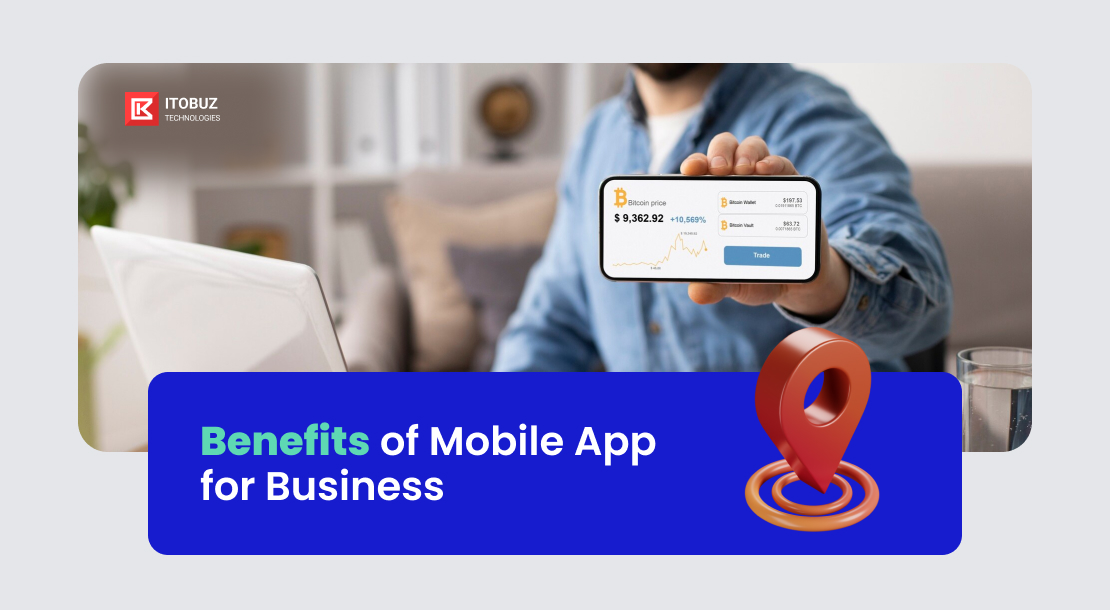
comments
comments for this post are closed